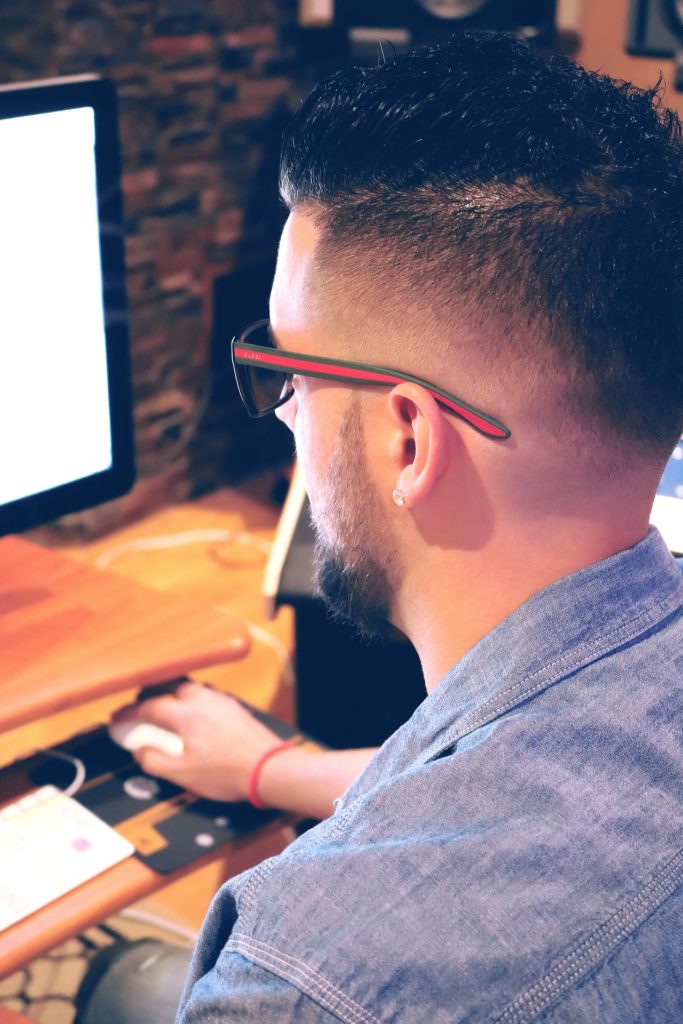
Cocaine is a highly addictive drug [1]. Cocaine is a stimulant drug and makes people feel euphoric and energized, and it can also make people more sensitive to sound, sight, and touch [1]. Even though cocaine can make some people feel good temporarily, it does have short and long-term health effects.
Short-term health effects can include:
- Nausea
- Raised blood pressure
- Irregular heartbeat
- Muscle twitches or tremors [1]
The intensity and duration of these effects depend on how much cocaine someone’s used. Research also shows that the way someone uses the drug can also influence the side effects they experience [1].
There are a few ways people use cocaine. People may snort cocaine, rub it on their gums, smoke it, or use a needle to inject it [1].
Long-term effects of cocaine use may include:
- Loss of smell
- Nosebleeds
- Brain damage
- Dangerously high blood pressure
- Stroke
- Seizure
- Issues with swallowing
- Cough
- Damage to respiratory or digestive system
- Increased risk of HIV [1]
The physical effects can be serious or life-threatening. Unfortunately, cocaine use is likely to negatively impact someone in more than just a physical way. Addiction can cause emotional distress and negatively affect someone’s social, academic, or professional responsibilities.
For this reason, it is crucial that people struggling with addiction to cocaine get treatment. The pandemic has affected certain aspects of addiction treatment. While there have been changes as a way to minimize the spread of COVID-19, treatment is still available.
 The type of treatment someone gets is going to depend on how severe their addiction is and what type of medical support they need. Here is what cocaine addiction treatment may look like in 2021:
The type of treatment someone gets is going to depend on how severe their addiction is and what type of medical support they need. Here is what cocaine addiction treatment may look like in 2021:
- Detoxification- Sometimes, people complete the detoxification process without medical support. Detoxification from cocaine can be dangerous if someone has severe withdrawal symptoms. For this reason, medically-supervised detoxification is recommended. This usually lasts about a week [2].
- Residential- Residential treatment is 24/7 support. Some programs like this are designed to be 30-day programs, while others may be longer. This type of treatment is beneficial for helping people maintain sobriety. Residential treatment can also help people get treatment for underlying mental health issues that were contributing to their drug use. Residential treatment often includes group counseling, individual and family therapy, peer support groups such as 12-step meetings, and medical support.
- Intensive Outpatient & Partial-Hospitalization Programs- These programs typically require individuals to attend for several hours a day for several days a week. Due to the COVID-19 health crisis, these programs may be offered virtually. Some programs may be completely virtual or may have some things in person, while other parts are virtual. These programs are appropriate for someone whose addiction is causing minimal impairment.
- Outpatient- Outpatient care could include weekly 12-step programs or meetings with a therapist. These services may also be offered virtually right now.
For some people, receiving treatment over the internet isn’t appealing. This is understandable, but it’s important to weigh the pros and cons. If virtual treatment can help you make progress towards recovering from cocaine addiction, then it’s worth it.
References:
[1] National Institute on Drug Abuse. (2018, July 13). Cocaine drugFacts. https://www.drugabuse.gov/publications/drugfacts/cocaine
[2] American Addiction Centers. (2021, March 16). Cocaine withdrawal symptoms, timeline, and treatment. https://americanaddictioncenters.org/cocaine-treatment/withdrawal
About the Author:
 Samantha Bothwell, LMFT, is a licensed Marriage and Family Therapist, writer, explorer, and lipstick aficionado. She became a therapist after doing her own healing work so she could become whole after spending many years living with her mind and body disconnected. She has focused her clinical work to support the healing process of survivors of sexual violence and eating disorders. She is passionate about guiding people in their return to their truest Self so they can live their most authentic, peaceful life.
Samantha Bothwell, LMFT, is a licensed Marriage and Family Therapist, writer, explorer, and lipstick aficionado. She became a therapist after doing her own healing work so she could become whole after spending many years living with her mind and body disconnected. She has focused her clinical work to support the healing process of survivors of sexual violence and eating disorders. She is passionate about guiding people in their return to their truest Self so they can live their most authentic, peaceful life.
The opinions and views of our guest contributors are shared to provide a broad perspective of addictions. These are not necessarily the views of Addiction Hope, but an effort to offer a discussion of various issues by different concerned individuals.
We at Addiction Hope understand that addictions result from multiple physical, emotional, environmental, and genetic factors. If you or a loved one are suffering from an addiction, please know that there is hope for you, and seek immediate professional help.
Published on March 31, 2021
Reviewed by Jacquelyn Ekern, MS, LPC on March 31, 2021
Published on AddictionHope.com
